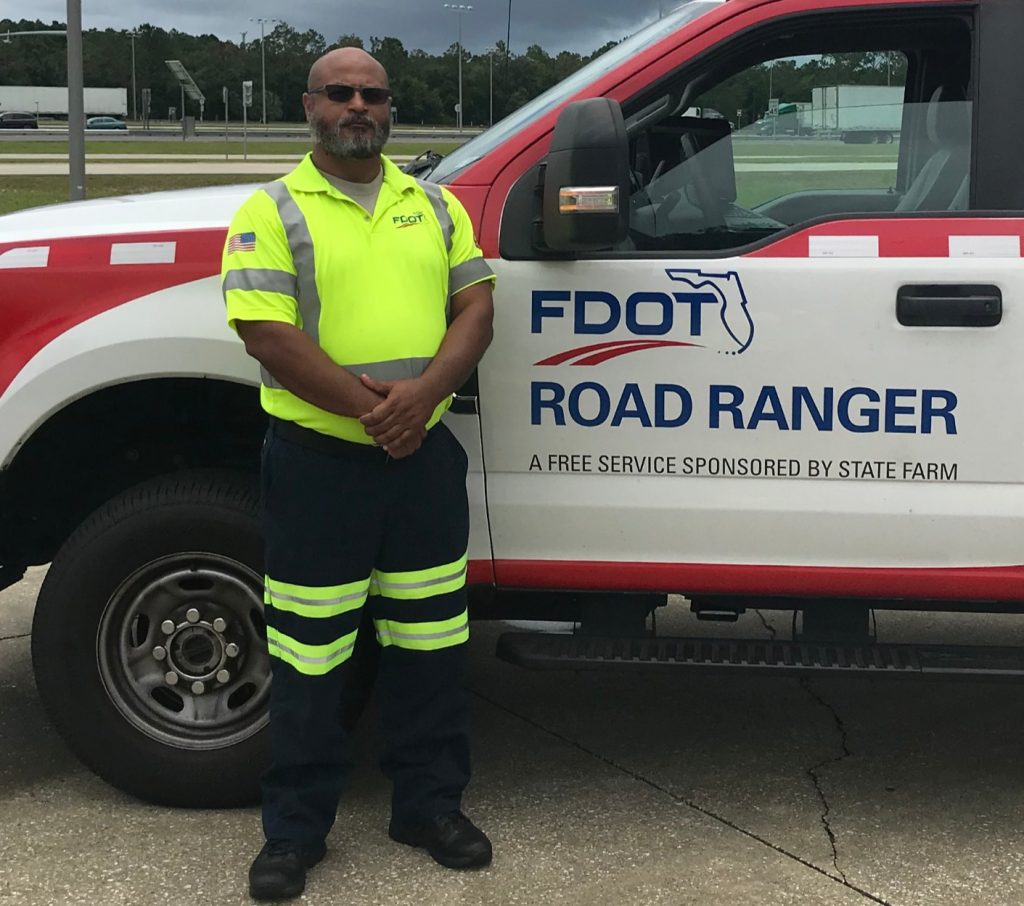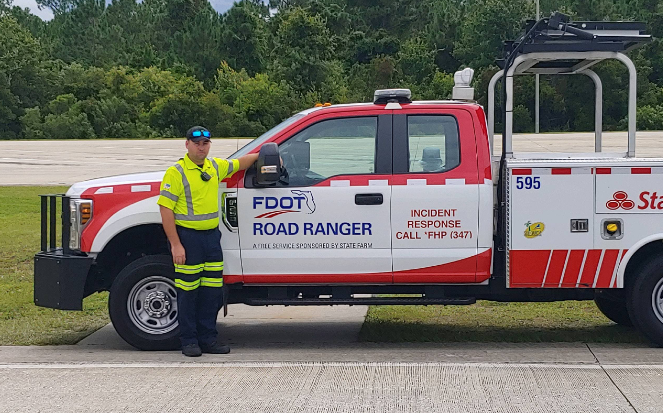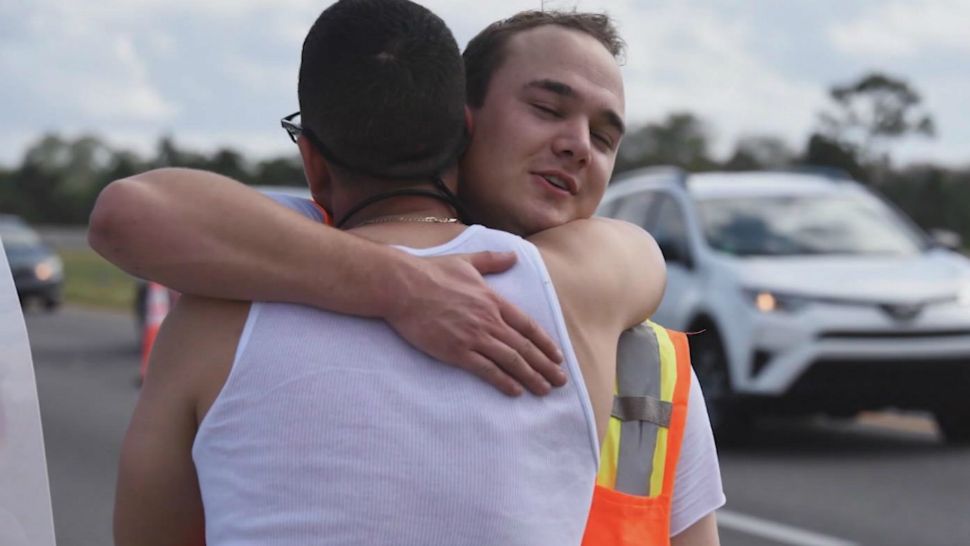Benefits of the program are:
- Increased safety at incident scenes
- Reduction of secondary incidents
- Reduction of incident duration by assisting emergency responders
- Free Assistance to disabled or stranded motorists
- Removal of road debris
- Reduction of congestion produced air pollutants
- Live traffic data collected from the Road Ranger
- Traffic Incident Command
Central Florida Road Rangers
The service patrol concept, known in Florida as Road Rangers, is a free service of the Florida Department of Transportation and its partners. The program was initially used for the management of vehicle incidents in construction zones, but proved so effective, that it has now been expanded to include all types of incidents. The Road Rangers is one of the Department’s most effective elements of Traffic Incident Management. Although each contractor has a different make of vehicle, all vehicles are white in color with the Road Rangers logo affixed to the rear and sides of the vehicle.
Service patrol drivers are all in uniform, courteous, and most have or are in training for first aid and CPR. Each service patrol driver provides a comment card to every stranded motorist that is assisted, which can be mailed back to the Department. Since the program’s inception in the year 2000, the Road Rangers have made over 6.1 million service assists.
D5 Road Ranger Success Stories:
On the morning of July 18th Road Ranger Carlos Norfleet had arrived on a disabled vehicle. While on the scene, he recognized the motorist seemed to be having a potential medical issue and offered to request medical assistance. Upon moving back to the truck, Carlos heard the horn of the vehicle go off, and Carlos immediately went to the individual and recognized they were unresponsive. Carlos then moved the motorists from the car to begin performing CPR. He performed CPR until EMS arrived. The Fire Department mentioned that Carlos’s quick action to conduct CPR had saved the individual’s life.


At approximately 6:00AM on August 2, 2019, FHP was notified of a missing elderly male with possible early onset dementia. At approximately 7:00AM, a Volusia County Deputy spotted the Silver Alert vehicle, however, the deputy was traveling southbound while the vehicle was traveling northbound. We had troopers enroute to the area, however we did not have any troopers in the immediate area. Mr. Thomas happened to be patrolling in the general vicinity of the BOLO and spotted the subject vehicle. He notified Dispatch and gave real-time updates until a trooper was able to make contact with the vehicle. Furthermore, he stayed on scene at a safe distance to provide traffic control safety for the troopers on scene. I have no doubt that Mr. Thomas’ actions were absolutely vital to us finding this subject and reuniting him with his family.
During an early June morning in 2019 a Road Ranger, Scott Well-Allen was wrapping up with an assist call on a semi fire along I‐95, just north of 528, when he was flagged down by a motorist who reported an unresponsive passenger. The Road Ranger responded and found an individual passed out. As a former officer and medic, Scott knew the questions to ask and quickly determined the incident to be a drug overdose. He alerted the RTMC and requested we notify responding Fire/Rescue units that they needed Narcan on the scene. In the process, the passenger’s heart stopped beating. Scott pulled the individual from the car and initiated CPR until Fire/Rescue units arrived at the scene. The Trooper advised that the individual appeared to be regaining consciousness as he was being loaded for transport to the hospital. Had the Road Ranger not been in the right place at the right time, and quick to react, this incident would have likely ended with a lost life.
On the morning of February 21st , Garrett Popovich, went above and beyond the call of duty to save a man’s life. Garrett was driving along SR-417 near Lake Nona when he noticed a group of people standing on the edge of a retention pond. He then saw a vehicle sinking in the water and after realizing someone was inside of it, immediately grabbed a window breaker and swam to the car. Garrett found the driver partially submerged inside. He quickly shattered the glass and pulled the driver out as water flooded in. Garrett then gathered the strength to push the man to shore. During the event, RTMC Operators stayed in contact with Garrett so they could relay critical information to FHP. Keeping in line with his selfless heroics, Garrett ended a television interview regarding the incident with his colleagues in mind. “I know it’s been stressed a lot but move over and slow down. My life depends on it, my coworkers’ lives depend on it, and we can’t help people at the scene of an accident or drag you out of a retention pond if we’re struck on the side of the road. So please, if you see emergency lights, please do what the law says. Move over, and if you can’t move over, slow down and give us room to work.”


